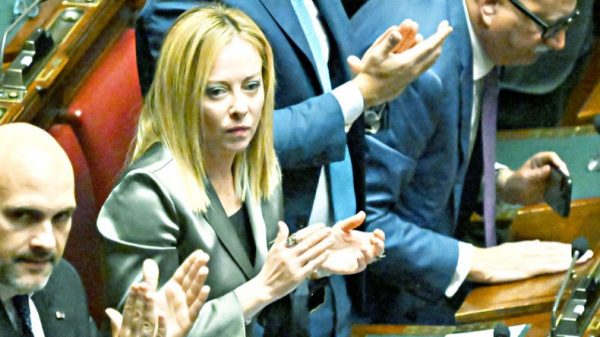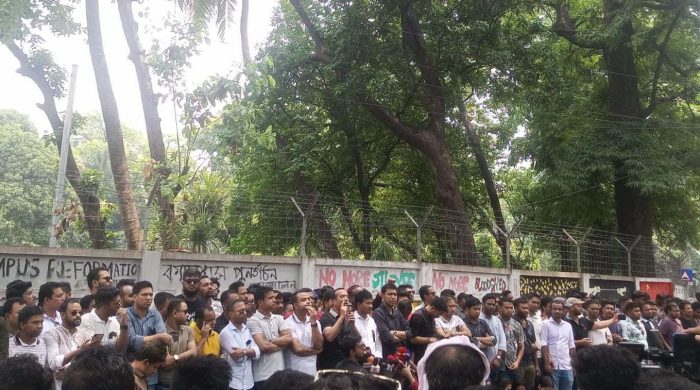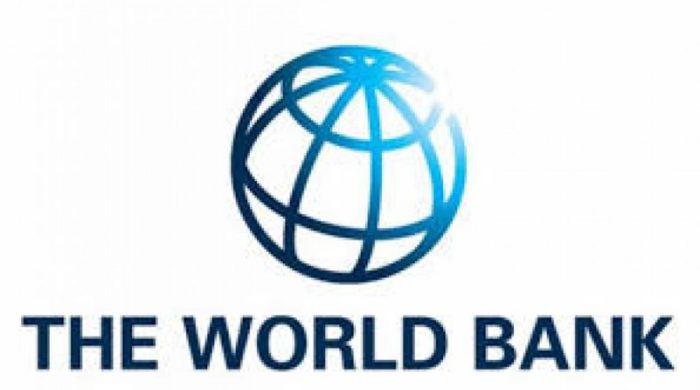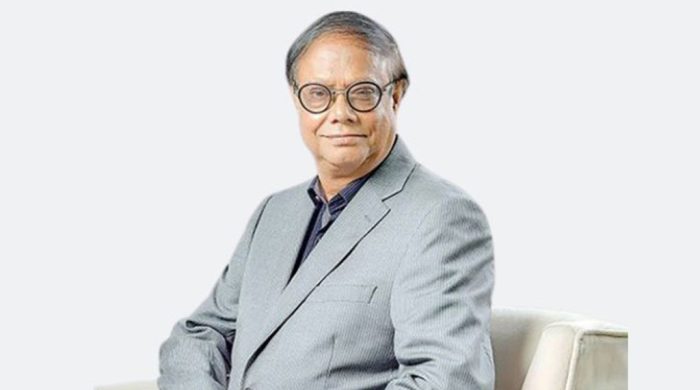Meloni’s tough assignment ahead

- Update Time : Saturday, October 22, 2022
- 108 Time View

IS THE European Union on the verge of a tipping point at which it can no longer maintain its proud identity as a ‘liberal club,’ but a regional group in which a tangible mass of illiberal, far-rightist, and anti-democratic elements collaborate to undermine its institutions for their own interests? The emerging wave of far-right surge has catapulted centre-ground parties to move towards the extreme of right — heralding a dangerous Europe-wide paradigm shift, a carbon copy of Israel’s post-1990s lurch towards the extreme right, in which political discourse and public consensus amalgamate beyond recognition.
The speed of this mutation is very fast, much faster than the predictions of many analysts. The Brothers of Italy today, along with the Sweden Democrats, National Rally in France, Freedom Party in Austria, Danish People’s Party, and Progress Party in Norway have all entered the corridors of power on the wave of an anti-immigration rhetoric and a right-leaning populist intonation of an intense urge to do away with status quo political elites who are allegedly being controlled by global financial institutions.
With the victory of the Brothers of Italy, a Eurosceptic populist party which emerged in last month’s general elections as the top party, Italy has taken a sharp turn towards the right. Giorgia Meloni, the one-time Mussolini admirer, is all set to become the first Italian woman to lead a government. Winning the elections on the hope of making drastic changes in the seven decades of stagnant politics in Italy, the Brothers of Italy is vowing to tackle the challenges of soaring inflation, a looming energy crisis and the war in Ukraine.
The new trend of EU nations leaping towards the populist right is alarming as well as equally baffling, as the majority of them continue to be the promoters of a socially considerate system of government that upholds democracy and freedom, which, under the narrow umbrella of a universal social security system for citizens, espouses human rights and allows for ‘laissez-faire’ economies and personal enterprise.
Meloni is a close ally of Hungary’s Viktor Orban and Poland’s Mateusz Morawiecki, who are no more isolated in the European arena. A warm congratulatory message to Meloni from Orban’s office conspicuously used the words of common vision: ‘In these difficult times, we need more than ever friends who share a common vision and approach to Europe’s challenges.’
The current trend can be attributed to the financial crisis of 2008 that actually gave birth to a feeling — right or wrong — among Europeans that equality has become untenable in the last two decades. This intrinsic irritation over the traditional leadership’s greed and complicit handling of financial matters is also contributing to the current tilt towards the right in Europe. The striking feature, however, is that most populist parties have been quite comfy with dictators, including the ones who are branding themselves as modern ones, like Viktor Orban of Hungary.
Against this backdrop, the arrival of the firebrand 45-year-old’s campaign motto ‘God, Country, and Family’ has ignited the spectre of reversion on rights issues in the Catholic-majority country. There is a widespread fear that Meloni would not hesitate to put new obstacles in the way of women’s reproductive rights and put a reverse gear on social reforms dating back to the 1970s. In the absence of any reasonable government experience and her leanings towards the rightists in the EU, as well as due to the fact that her two potential coalition parties, the moderate Forza Italia of 85-year-old Silvio Berlusconi and the hard-right League party headed by Matteo Salvini, are both friendly towards Russian president Vladimir Putin, she may find reasonable challenges in creating a balance in Italy’s foreign policy.
Although Meloni and her party have vowed to work closely with the EU, but being a weighty Eurosceptic, she has often insisted that Italy must assert its interests more and challenge Brussels on everything from public spending rules to mass migration. ’Italy first’ may become her new mantra in the coming days.
As a self-declared ‘sovereigntist’, Giorgia Meloni’s ardent nationalism has created some genuine worries in Brussels. The bloc’s third largest economy and one of its founding members, Italy’s drift towards the right is being watched very closely by the Brussels bureaucracy. At heart, Meloni is a deep Eurosceptic. During her election campaign, she has been quite vocal about Italy’s being downtrodden by the EU’s bigger and more wealthy members. Though she has never mentioned any intention of leaving the euro or the European Union, her close ties with the EU’s problematic states — Hungary and Poland in particular — may create a new headache for Brussels.
But it should not create any panic in the EU ranks. Meloni is also a pragmatic politician and she understands that the EU’s support package of €190 billion, the credit for which goes to outgoing prime minister Mario Draghi, is extremely crucial for the long-term economic and social sustainability of Italy. She can’t enrage her EU colleagues — and recklessly miss the boat — by adopting a radically rightist stance on European affairs.
The first test for Meloni, after entering the Palazzo Chigi — the prime minister’s residence — is how she will pursue the reforms agreed by her predecessor Draghi with Brussels and whether her government will re-negotiate the EU’s post-pandemic recovery fund of over €190 billion in view of the looming energy crisis that has put extraordinary pressure on the pockets of the EU. She is not likely to make any major shift in political ideology of the country at this chaotic time of global disruption. She can’t afford to ignore a vast majority of Italians who did not vote for her as well as European neighbours, still liberal democracies and capitalist-economies who are the champions of globalisation.
In order to reverse Italy’s spluttering fortunes, she needs a lot of patience and compromises with her rightist views. This is the price she may reluctantly pay to keep things on track. Europe is once again on the edge, and Meloni’s success is a symptomatic of the simmering populism of far right that is graduating to become a major force to be reckoned with in most European nations.
A large number of Italians are quite wary of the possible reversal of progressive social policies, yet the fact is that, in spite of his vehement rightist rhetoric during the election campaign, there is little that is genuinely new in her programme. She will enter office not on an outpouring of enthusiasm and optimism but on a wave of disillusionment or pessimism.
Moreover, unlike her other prominent coalition partners Salvini and Berlusconi, she has been tenaciously supporting Ukraine. With continuous embarrassing movements for Putin in the Ukraine war, she will be in a relatively better position to manage her government. The management of the economy will certainly be the biggest challenge for Meloni. In his 18 months in office, Draghi put Italy’s economy in what might be described as a benign straitjacket: he wrote a public investment plan for Italy to receive €190 billion ($183 billion) from the European Union’s NextGenerationEU scheme over five years, four of which still lie ahead. This makes it obligatory to install a rigorous system for auditing and monitoring that expenditure, as well as demonstrate compliance with the stringent conditions set by the European Commission before each tranche of payments is released.
Being the first post-fascist leader to take charge of the coveted post of prime minister, Meloni, who displayed a relatively softer image to the electorate during the electoral campaign, also needs to downplay whipping up fears about immigrants, foreigners and liberal elements, and run her government rather moderately without upsetting the Brussels bureaucracy that controls the tabs of massive EU post-pandemic funding to Italy. But she also can’t ignore her political base. After all, she is a populist rightist who thrives on sensationalism. She has a tricky phase ahead.
Dr Imran Khalid is a freelance contributor from Karachi.













